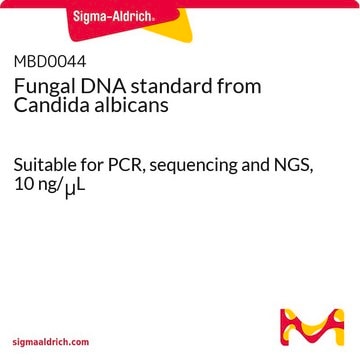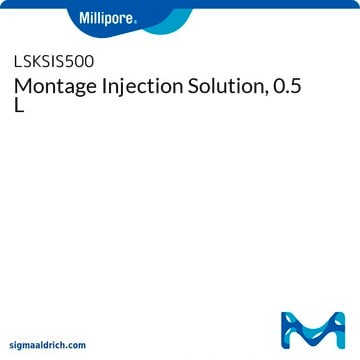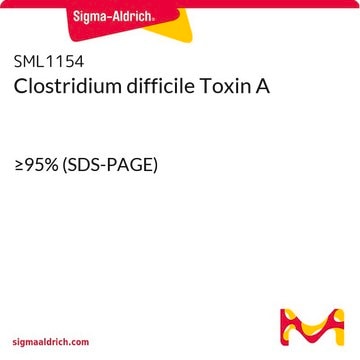MBD0005
Microbial DNA standard from Salmonella enterica
Suitable for PCR, sequencing and NGS, 10 ng/μL
About This Item
Produits recommandés
Niveau de qualité
Forme
liquid
Concentration
10 ng/μL
Technique(s)
DNA extraction: suitable
DNA sequencing: suitable
PCR: suitable
Conditions d'expédition
ambient
Température de stockage
−20°C
Description générale
Salmonella enterica serotype Typhimurium (also S. Typhimurium) is a rod-shaped gram-negative bacterium of the family Enterobacteriaceae. It is an important food-borne pathogen that in humans causes intestinal inflammation, diarrhea, and the presence of neutrophils in stool samples.2 Growth of S. enterica in the gut lumen causes depletion of the healthy microbial community.3 Infection with Salmonella can induce inflammation and increase the risk for inflammatory bowel disease (IBD)4
Read here how to use our standards to ensure data integrity for your microbiome research.
Application
Caractéristiques et avantages
- Individual microbial standard for microbiomics and meta-genomics workflow
- Suitable standard for PCR, sequencing and NGS
- Improve Bioinformatics analyses
- Increases reproducibility
- Compare results lab to lab
Forme physique
Autres remarques
Code de la classe de stockage
12 - Non Combustible Liquids
Classe de danger pour l'eau (WGK)
WGK 1
Point d'éclair (°F)
Not applicable
Point d'éclair (°C)
Not applicable
Certificats d'analyse (COA)
Recherchez un Certificats d'analyse (COA) en saisissant le numéro de lot du produit. Les numéros de lot figurent sur l'étiquette du produit après les mots "Lot" ou "Batch".
Déjà en possession de ce produit ?
Retrouvez la documentation relative aux produits que vous avez récemment achetés dans la Bibliothèque de documents.
Articles
DNA standards enhance metagenomics research integrity, offering precise species study and mixed community standards.
DNA standards enhance metagenomics research integrity, offering precise species study and mixed community standards.
DNA standards enhance metagenomics research integrity, offering precise species study and mixed community standards.
DNA standards enhance metagenomics research integrity, offering precise species study and mixed community standards.
Notre équipe de scientifiques dispose d'une expérience dans tous les secteurs de la recherche, notamment en sciences de la vie, science des matériaux, synthèse chimique, chromatographie, analyse et dans de nombreux autres domaines..
Contacter notre Service technique








